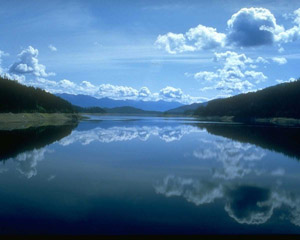 The Branch of Conservation Planning Assistance provides headquarters-level coordination for Fish and Wildlife Service involvement in large-scale planning efforts in the areas of energy, transportation and water development, as well as habitat conservation efforts, including work in the Everglades, Northwest Forest, and America’s coastal areas. The Branch of Conservation Planning Assistance provides headquarters-level coordination for Fish and Wildlife Service involvement in large-scale planning efforts in the areas of energy, transportation and water development, as well as habitat conservation efforts, including work in the Everglades, Northwest Forest, and America’s coastal areas.
Biologists working for the program in all 50 States assist project proponents, planners, and agency personnel in developing plans that conserve, restore or enhance fish and wildlife while at the same time accomplishing the objectives of proposed development. Biologists in the Washington, D.C. headquarters and in the field have numerous duties and bring numerous tools to bear on their challenging jobs: reviewing and providing recommendations on plans and development designs, crafting mitigation plans, providing expertise in wildlife and habitat science, and serving as members on planning teams.
The Project Planning programs works directly with other Federal agencies and programs, as well as the American public, on infrastructure development projects to protect the environment and preserve our Nation's biological, terrestrial and aquatic natural resources.
The Program accomplishes it's mission :
- Working cooperatively with partners early in the planning process to identify ways to simultaneously conserve wildlife while accomplishing project objectives,
- Supplying the best possible technical information to ensure fish and wildlife resources and their public benefits are considered,
- Working at a landscape level when possible, providing guidance that can be applied broadly over a large area with numerous projects. This approach provides effective and efficient conservation, while streamlining the review of individual projects,
- Focusing on high priority habitats and high priority projects, and
- Working cooperatively with other Service biologists and other resource agencies to effectively gather high-quality information on species, their habitats, and the potential impacts of human development.
Program accomplishments include:
- A new conservation philosophy - SNAP -
- Streamlining Projects through Early Consultation.
- Non-Regulatory Technical Assistance.
- All Trust Resources and Their Habitats.
- Partnerships for On-the-Ground Results.
- Providing high quality technical information on wetland habitats, vulnerable coastal habitats, and the impacts of human activities on migratory birds and other wildlife,
- As a catalyst to the conservation of hundreds of thousands of acres of wetlands and other high-value fish and wildlife habitats that would otherwise have been lost across the nation, and
- Working cooperatively with planners, developers, and project applicants to provide wildlife-friendly energy, transportation, and infrastructure projects across the Nation.
|